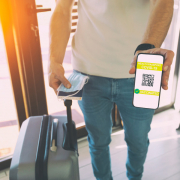Critical SA Jobs Left Vacant In Wake Of Skills Exodus
/in Archived, News /by xp-adminWhile the grass might not always be greener on the other side, it does not negate the fact that there is a paucity of educated professionals and experienced staff across many industries that contribute largely towards the economic growth in SA.
The impact of emigration on the ever-changing Critical Skills List
Xpatweb, a specialist immigration consultancy, launched their own independent critical skills survey in 2016. Since then, this annual survey has become a vital contributor to the official Occupations in High Demand List released by the Department of Higher Education and Training (DHET) and the Critical Skills List (CSL) issued by the Department of Home Affairs (DHA), both contributing to assess skills shortages in South Africa. It also marked the first time that a private company was called upon to deliver commentary during the exercise. Subsequently, it has been used to re-include occupations to the CSL that were going to be excluded. The latest survey from Xpatweb sourced data from 220 notable companies, which included multinational groups and JSE-listed corporations.
It cannot be ignored that a contributor to the ever-increasing skills shortages in South Africa, is the exodus of skilled and experienced professionals moving abroad. Their motivation is to pursue international exposure, take advantage of earning a foreign currency, gain global experience and to create opportunities for their families, which could include a second passport or better education.
Skills going out fast, but coming in slow
The big concern is indeed the sad loss of South African professionals who have chosen to emigrate. However, it has also raised another glaring concern. As evidenced in Xpatweb’s Critical Skills Survey, there are companies in dire need of filling key positions to conduct their business. Failure to find suitable South African candidates for these roles, has resulted in Human Resource professionals casting their lines further afield with the hopes of snagging professionals abroad. However, it’s not as easy as finding the best match in a pool of foreigners and then handing them the job.
Before applying for work visas, their qualifications must first be assessed by the South African Qualifications Authority (SAQA) and their skills and experience corroborated by the relevant professional body. Only then does the matter progress to the DHA, before the position is finally filled and work resumed.
“It is clearly not just about the skilled workers leaving the country,” says Marisa Jacobs, Director at Xpatweb. “It’s also about attracting and securing critically skilled workers to come into South Africa.”
With the focus on a compliant application, compiled specific to the applicant, employer and place of submission to secure a first-time issued visa in the most expeditious manner, it is vital for each step in the process to be handled expertly. The emphasis should be on which processes can run concurrently, which steps can be motivated to expedite the outcome and an overall approach of care and efficiency.
Jacobs concludes by stating, “Working with a variety of clients across industries on urgent immigration projects daily, we better appreciate than most the business importance and personal impact of obtaining a legal and correctly categorised visa in the most administratively efficient and timely manner.”






